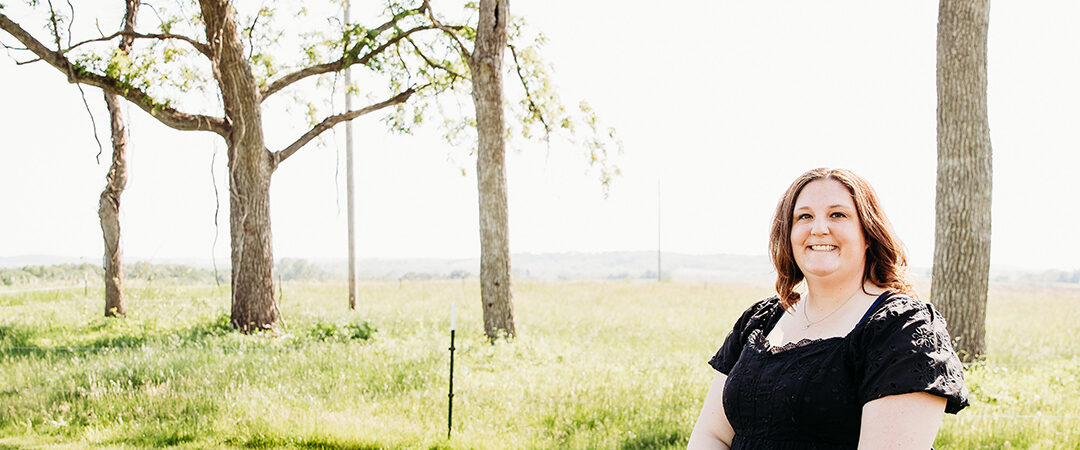Last Friday, I attended the Great Plains Alliance for Computers in Writing (GPACW) Conference in Mankato, Minnesota. I presented with two peers a presentation titled “Our Digital Footprints: Extending Conversations Beyond Writing to Issues of Digital Citizenship and Communication in the Foundational Composition Course.” Our presentation was focused on a project we created in CI 503: Designing Effective Learning Environments at Iowa State University. I mention this presentation because it ties in well with our discussion of morality, ethics, and the extent of our responsibility as educators to teach students digital citizenship.
 |
| Chris Jones, Janet Roberts, and Jackie Hoermann at the GPACW Conference in Mankato, MN. |
My group’s project stemmed from increasing occurrences of students misusing or abusing technology in both K-12 and higher education. Several negative incidences involving high school students have occurred in the United States. One student in Indiana was suspended for tweeting foul language this past March (Kaiser, 2012). Several other students were banned from participation in extracurriculars in Massachusetts this month for posting racist remarks on Twitter (Toporek, 2012). Another student was suspended after spreading a racy photo of a classmate via Twitter in Georgia (Griffies, 2012). In each instance, the students argued against the accusations, insisting that they “tweeted” and “posted” outside of school hours, claiming “it’s my own personal stuff” (Kaiser, 2012). These isolated occurrences indicate that students have received little to no education about digital citizenship, privacy, and social media.
On a more localized level, the problem also exists at Iowa State University. During VEISHEA 2012, an image of two students performing provocative sexual acts circulated on Facebook (Total Frat Move, 2012). A simple Google search of “frat boy” and/or “VEISHEA” yields an image appearing on several blogs and fraternity sites. More likely than not, these students did not intend for their activities during VEISHEA to go viral over the Internet.
Social media and online technologies have become the norm for information-age students. With this new medium, however, new issues have evolved, resulting in both positive and negative outcomes. Issues in cyberbullying, free speech and harassment, and cyber-libel prove detrimental to online students. On the other hand, the internet and emerging technologies provide numerous opportunities for students to experience leadership, trust, insight, integrity, resilience, empowerment, support, inclusion and ethical online decisions; all of which result in digital citizenship (Shariff, 2012).
According to education and technology scholar Mike Ribble, digital citizenship is “a concept which helps teachers, technology leaders and parents to understand what students/children/technology users should know to use technology appropriately… it is a way to prepare students/technology users for a society full of technology” (2012). Digital citizenship is the foundation for students as they engage with one another in an online environment, both academically and socially.
My group identified the need to incorporate digital citizenship into higher education, particularly into the ISUComm foundation courses at Iowa State. ISUComm is a communicating-across-the-curriculum initiative hosting several foundational courses that acclimate students to academic and professional discourse in order to give them the communication skills they need to thrive in a variety of communication situations. We recognized that there is a problem in how foundational communication courses at Iowa State University teach what it means to be a digital citizen because, essentially, the issue is not incorporated into the curriculum. Electronic communication is a part of ISUComm’s curriculum; however, it is downplayed compared to the other communicative modes of written, oral, and visual communication.
At the GPACW Conference, we presented our proposed unit on digital citizenship. To our surprise, our unit was met with several questions and some hesitation, but sparked thoughtful discussion among the scholars at the conference. The main issue at hand was whether the integration of a digital citizenship unit would essentially define what it is to be “good” and “bad,” forcing views of morality on students. However, we did identify the need to emphasize the difference between being a “positive citizen” and a “positive digital citizen;” these two are not one in the same. Either way, I feel that students should be informed of the possible repercussions of their online activity. Especially since, the same day of my presentation, I learned that several K-12 students were reported to school authorities for posting racist tweets about the newly elected president. Jezebel ran an article highlighting their experiences with the tweets, the students, and their interactions with the schools representing the students. Although there is discussion of the ethical nature of Jezebel’s “outting” of the students (gigaom), it is evident that these students’ actions have impacted their future, as well the credibility of their representative schools. I hope this evokes discussion about whether it is our obligation as educators to promote the teaching of digital citizenship in higher education.
References
Egan Morrissey, Tracie. (2012). Racist teens gorced to answer for tweets about the ‘nigger’ President. Jezebel. Retrieved Nov 11, 2012 from http://jezebel.com/5958993/racist-teens-forced-to-answer-for-tweets-about-the-nigger-president.
Gribble, Mike. (2012). Digital Citizenship: Using Technology Appropriately. Retrieved May 21, 2012 from http://www.digitalcitizenship.net.
Griffies, Jennifer. (2012). Gwinnett student suspended for racy tweet. wsbradio. Retrieved May 21, 2012 from http://www.wsbradio.com/news/news/gwinnett-student-suspended-racy-tweet/nMhKT/.
Ingram, Matthew. (2012). When does shaming racist kids turn into online bullying? gigaom. Retrieved Nov 11, 2012 from http://gigaom.com/2012/11/09/when-does-shaming-racist-kids-turn-into-online-bullying/.
Kaiser, Tiffany. (2012). Indiana high school student expelled for tweeting foul language, says it wasn’t posted at school. Daily Tech. Retreived May 21, 2012 from http://www.dailytech.com/Indiana+High+School+Student+Expelled+for+Tweeting+Foul+Language+Says+it+Wasnt+Posted+at+School/article24322.htm.
Shariff, Shaheen. Define the Line. (2012). Retrieved May 21, 2012 from http://www.definetheline.ca/.
Toporek, Bryan. (2012). Student-athletes suspended from sports over racist tweets. Education Week. Retrieved May 21, 2012 from http://blogs.edweek.org/edweek/schooled_in_sports/2012/05/student-athletes_suspended_from_sports_over_racist_tweets.html.
Total Frat Move. (2012). Retrieved May 24, 2012 from http://totalfratmove.com/902971.
